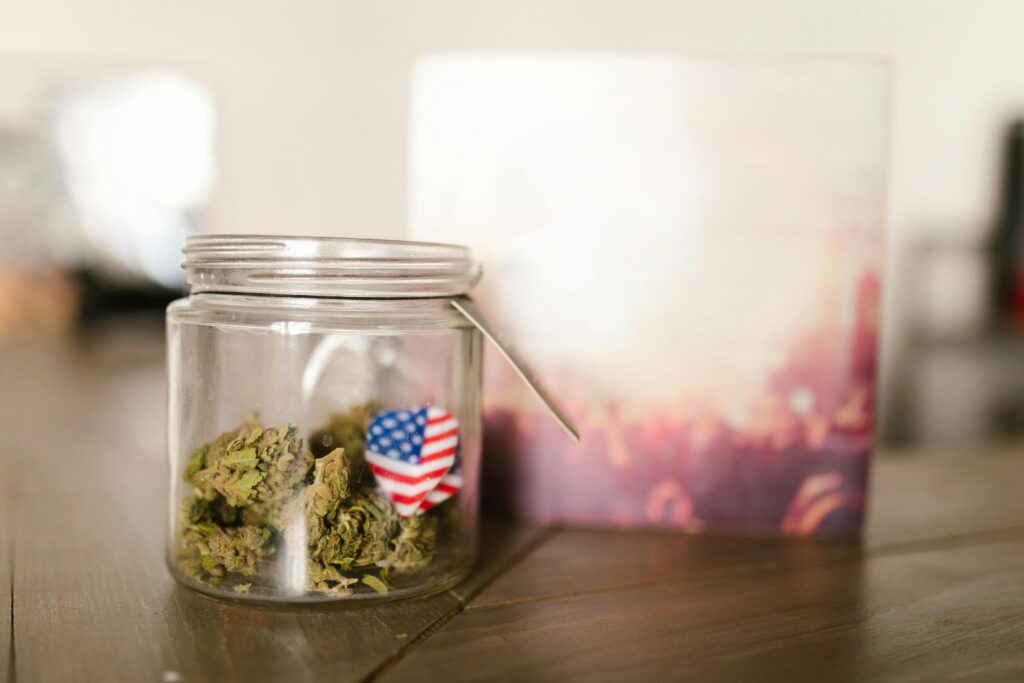Trump Considers Reclassifying Marijuana
President Donald Trump confirmed on August 11 that his administration is reviewing whether to reclassify marijuana under federal law. The move could mark the biggest shift in U.S. cannabis policy in over 50 years.
“We’re looking at reclassification and will make a determination over the next few weeks,” Trump told reporters. He noted the benefits of medical marijuana but warned about “bad things having to do with just about everything else.”
Current Federal Status
Marijuana is currently a Schedule I drug, alongside heroin, LSD, and ecstasy. Trump described these substances as having “no currently accepted medical use” and a high potential for abuse.
Reclassifying marijuana to Schedule III would place it with ketamine, anabolic steroids, and Tylenol with codeine. These drugs carry lower risks of dependence, and research on them requires fewer approvals. Schedule I studies demand special DEA registration, while Schedule III studies can proceed with a standard license.
The proposal began under the Biden administration but was not finalized. After Trump took office, his team canceled a DEA hearing scheduled for the day after the inauguration. The current administration now has the authority to decide. If approved, the change would affect cannabis operations, research, and medical use nationwide.
Impacts on Industry and Research
Reclassification would allow cannabis businesses to claim standard tax deductions. Currently, companies handling Schedule I or II substances cannot deduct expenses like rent or payroll. The shift would put them on equal footing with other industries.
Despite this, many banks may still hesitate to work with cannabis companies due to federal penalties. The Congressional Research Service notes that the schedule change alone would not remove these financial risks.
For researchers, the change would simplify studies. Federal restrictions currently make studying marijuana’s therapeutic effects difficult. With a Schedule III label, scientists could conduct larger, more consistent research projects.
Federal criminal penalties would likely decrease, aligning national policy more closely with state laws. However, this change would not legalize marijuana nationwide, erase criminal records, or alter state laws. Most people serving marijuana-related sentences are in state custody. Federal arrests still occur at around 6,000 per year.
State Laws and Public Use
Recreational marijuana is legal in 24 states and the District of Columbia. Medical use is allowed in 40 states and D.C., while seven states have decriminalized small amounts. A few, including Indiana, Nebraska, Wyoming, and Idaho, still prohibit marijuana.
Reactions: Industry vs. Public Safety
Trump’s announcement drew mixed reactions. Supporters highlighted research potential and benefits for medical marijuana users, including veterans. Critics, including the National Sheriffs’ Association, cited the drug’s “high abuse potential” and fatal crash risks.
Cannabis industry leaders have been lobbying the administration. Reports indicate that companies tied to legalization and research have donated millions to Trump’s political groups. At a fundraiser at his Bedminster golf club, he discussed the issue.
Investors reacted immediately. Cannabis shares surged after the announcement: Canopy Growth climbed 26%, Tilray Brands rose 41%, and the AdvisorShares Pure U.S. Cannabis ETF jumped 28%.

Remaining Questions
The White House continues its review. Chief of Staff Susie Wiles requested agencies to submit analyses, now compiled in a report under her review.
A key question remains: Would rescheduling change how police use the smell of marijuana as probable cause for stops and searches? This issue matters for an administration emphasizing law enforcement flexibility.
What Reclassification Won’t Do
Reclassification could boost the multibillion-dollar cannabis industry. Revenue is projected to reach $34 billion this year. Easing tax rules would increase margins and free cash for hiring, research, and compliance.
Some states may accelerate legalization. Indiana Governor Mike Braun suggested federal changes could influence other states quickly, reducing the long-standing divide between federal and state policies.
Public support is strong. Sixty percent of voters favor nationwide recreational legalization, up from 36% in 2005. About 22% of Americans reported marijuana use in the past year, rising from 19% in 2021.
Trump called marijuana “a very complicated subject” and emphasized his administration’s goal to resolve it through decisive action. However, challenges remain, as ballot measures failed last fall in Florida, North Dakota, and South Dakota.